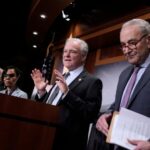The recent presidential election has ushered Donald Trump back into the White House, setting the stage for forming a new government.
As appointing key officials unfolds, the focus naturally turns to critical roles within the intelligence community—particularly the Central Intelligence Agency (CIA).
Here, I offer a perspective from my 19 years of service in the CIA under four different presidents and eight CIA directors to ensure the next CIA director navigates and reforms the entrenched bureaucratic structures often called the “Deep State.”
John Ratcliffe has emerged as the selected appointee for the CIA directorship. His tenure as the Director of National Intelligence and Congressional member with oversight duties over the Intelligence Community demonstrated his willingness to confront the Intelligence Community and CIA’s abuses of power over the Russia investigation.
However, leading the CIA involves more than just the director; it requires a robust team to effect real change.
History has shown that even the most capable directors can become mere figureheads without solid support. The case of John A. McCone stepping into the shoes of Allen Welsh Dulles in the 1960s illustrates this vividly. Dulles’ personnel ruled the CIA under McCone, who was kept in the dark about CIA activities.
More recently, John Brennan’s influence lingered within the agency under Mike Pompeo’s leadership. Gina Haspel served as his deputy director and then as director, continuing Brennan’s rule through his surrogates. Ms. Haspel was a Brennan hand-picked and groomed protégé who reportedly played a key role in the Steel Dossier.
This raises the need to ensure the new director has the organizational support to enact change. Strategic appointments for real change begin with the deputy director. The choice of deputy director is pivotal. This role must be filled by someone who can complement Ratcliffe’s vision and tenacity and tackle bureaucratic inertia head-on.
Specifically, they manage the agency downward instead of the career civil servants overseeing the deputy upward to force their will on the director.
Many are unaware that the roles of the director and deputy director are heavily consumed by protocol duties, including managing communications and meetings with foreign dignitaries and providing counsel to the President and key administration officials on intricate and demanding intelligence issues.
Consequently, this often leaves the bulk of the operational management to career CIA staff, who are sometimes referred to as the “Defenders of the Bureaucracy.”
This leads to perhaps the critical position of the chief operating officer (COO)—the number three official at the agency.
The COO is the operational heart of the CIA, managing daily activities and serving as the linchpin between the top echelons and the operational staff. A COO aligned with the director’s goals can significantly enhance the director’s ability to enact policy changes.
The new director must ensure that through his deputy and COO, the agency is managed downward to implement the director’s reforms instead of the career civil servant bureaucrats managing the COO, deputy director, and director himself, as history has proved through McCone and Pompeo.
However, the appointments must also include critical stakeholders.
The Office of Congressional Affairs (OCA) is often underestimated, but it is crucial in shaping congressional perceptions and support. A director needs an ally here to prevent the agency bureaucrat from undermining the director’s agenda through legislative channels.
Often forgotten is the Office of Public Affairs (OPA), which influences public and media narratives about the CIA. Tight control over this office can prevent leaks aiming to discredit or pressure the director to serve the bureaucrats’ wishes instead of the bureaucrats serving the director.
We cannot forget the Office of General Counsel (OGC). Given past abuses in this office regarding personnel and whistleblower issues, it is essential to ensure legal alignment with the director’s reforms.
The OGC litigation division has been a stalwart defender of the bureaucracy, seeking to crush whistleblowers, making it nearly impossible to create an agency culture of accountability that aims to stop abuses of power.
The task at hand is immense.
The CIA’s internal culture and the broader intelligence community’s dynamics resist change. The narrative centered on past directors like Porter Goss, who faced significant internal opposition, underscores the personal and professional resilience required for this role, which requires substantial help from personnel aligned with the director’s vision and plans.
Porter Goss was embarrassed by CIA leaks, leading to his short tenure. Any incoming director must know that they could suffer the same fate as the entrenched career bureaucrats who will seek to resist change.
As Mr. Ratcliffe or any successor steps into this role, they must be prepared for a battle against the internal saboteurs and the inertia and resistance within. The support system they build around them will determine their success in leading the CIA and truly reforming it.
The goal should not merely be to dismantle the so-called Deep State but to foster an environment where transparency, accountability, and integrity are the new norms, ensuring the agency serves its true purpose of safeguarding national security without overstepping its bounds.
Good luck, Mr. Ratcliffe. Your journey will test your resolve like never before.
Still, with the right team, you might redefine what it means to lead the CIA in the 21st century, returning it to its original intent with a culture of accountability, transparency, and freedom from abuses of power.
The views expressed in this opinion article are those of their author and are not necessarily either shared or endorsed by the owners of this website. If you are interested in contributing an Op-Ed to The Western Journal, you can learn about our submission guidelines and process here.
Advertise with The Western Journal and reach millions of highly engaged readers, while supporting our work. Advertise Today.





